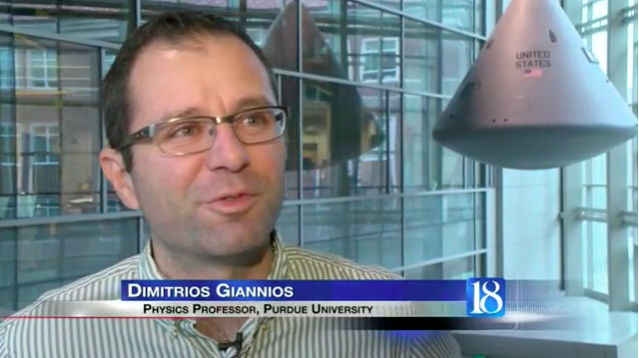[:el]
Dimitrios Giannios is a professor of Physics and Astronomy at Purdue University. He was part of a team that discovered a black hole absorbing a star in a distant galaxy.
D. Giannios completed his B.Sc. at the University of Patras in Greece in 2000. He continued his studies at the University of Crete in Greece where he completed both his M.Sc. and his Ph.D. in Physics in 2002 and 2005 respectively.
From 2008 till 2011, he was a postdoctoral researcher in the Department of Astrophysical Sciences at Princeton University in the United Stated and in 2011 he became an associate research scholar at the same university.
From 2012 till present, D. Giannios is a professor of Physics and Astronomy in the Physics Department of Purdue University. His research interests include theoretical study of the physics of relativistic jets, the acceleration and composition of ultra-high-energy cosmic rays, the nature of the central engine of gamma-ray bursts as well as the appearance of compact objects in general relativity and modified theories of gravity.
D. Giannios was part of an international team, led by Jun Yang (Onsala Space Observatory, Chalmers University of Technology in Sweden), that used a radio telescope network the size of the Earth to zoom in on a unique phenomenon in a distant galaxy. A jet activated by a star being consumed by a supermassive black hole. One dramatic consequence is that some of the star’s material, stripped from the star and collected around the black hole, can be ejected in extremely narrow beams of particles at speeds approaching the speed of light. These so-called relativistic jets produce strong emission at radio wavelengths.
The record-sharp observations reveal a compact and surprisingly slowly moving source of radio waves, with details published in a paper in the journal Monthly Notices of the Royal Astronomical Society. The results were presented at the European Week of Astronomy and Space Science in Athens, Greece.
Dimitrios Giannios has more than 15 publications in major scientific magazines.
Read also:
Greek astronomer in the team that captured black hole as it eats passing star[:]





